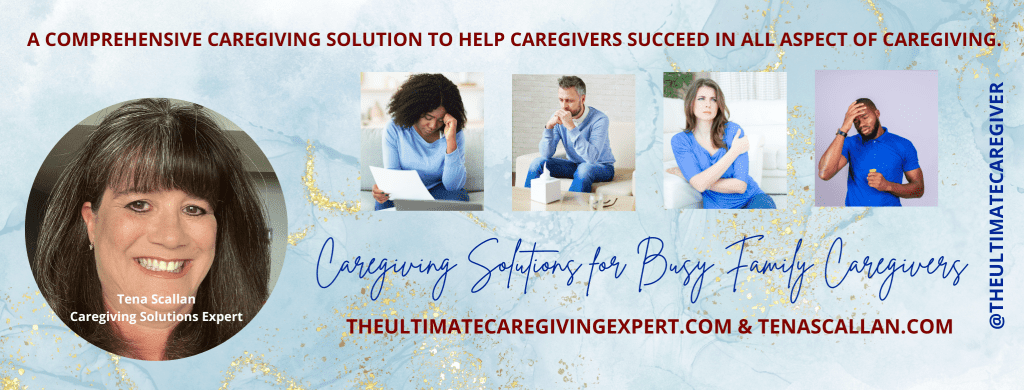Caring for an alcoholic
As a family caregiver, the journey of caring for a loved one can be both rewarding and challenging. When that loved one is a parent struggling with alcoholism, the dynamics can become even more complex. Adult children who find themselves in the role of caregiver for an alcoholic parent in their own home often face unique obstacles and emotional strains. However, with the right approach and support, it is possible to create a nurturing environment while maintaining boundaries and self-care. I went through this, so here are some essential tips for adult children navigating this delicate situation:
Establish Clear Boundaries:
Setting clear boundaries is crucial when caring for caring for an alcoholic in your home. It creates a safe and supportive environment for both you and your loved one, promoting their recovery journey while ensuring your own well-being. Here are some effective ways to establish and communicate boundaries:
- Communicate openly and assertively with your parent about the rules regarding alcohol consumption in your home.
- Emphasize the importance of maintaining a sober environment for the overall well-being of everyone in the household.
- Clearly outline consequences for violating these boundaries, ensuring accountability and consistency in enforcing them.
- Seek support from other family members or professionals if necessary to reinforce these boundaries and maintain a cohesive approach.
- Regularly revisit and adjust boundaries as needed to accommodate changes in circumstances or progress in your parent’s recovery journey.
Seek Professional Guidance:
Navigating the complexities of caring for an alcoholic parent in your home can be emotionally challenging and overwhelming. Seeking professional guidance is a proactive step towards understanding and addressing these challenges effectively. By consulting with therapists, counselors, or support groups specializing in addiction and family dynamics, you gain access to valuable insights, coping strategies, and emotional support for both yourself and your parent. Here are some ways professional guidance can benefit you both:
- Gain a deeper understanding of addiction and its impact on family dynamics through expert guidance and education.
- Receive personalized coping strategies and tools to manage stress, anxiety, and other emotional challenges associated with caregiving.
- Explore healthier communication techniques and relationship dynamics to foster a supportive and constructive environment.
- Access resources and referrals to additional support services, such as rehabilitation programs or community resources.
- Receive ongoing support and encouragement from professionals who understand the unique challenges of caring for an alcoholic parent.
Encourage Treatment:
Encouraging your parent to seek treatment for alcoholism is a pivotal step towards their journey to recovery and healing. As a caregiver, offering support and guidance in accessing appropriate resources can significantly impact their willingness to seek help. By gently advocating for treatment options such as rehabilitation programs, support groups, or therapy sessions, you provide your parent with the necessary tools and support to address their addiction effectively. Here are some ways to encourage and support your parent in seeking treatment:
- Approach the conversation with empathy, understanding, and a non-judgmental attitude, creating a safe space for open communication.
- Educate yourself about available treatment options and resources to provide informed guidance and support to your parent.
- Offer to accompany your parent to appointments or support group meetings, providing reassurance and companionship throughout their journey to recovery.
- Express your unwavering support and willingness to assist them in any way necessary, emphasizing that they are not alone in their struggle.
- Continuously reinforce the benefits of treatment, highlighting the positive impact it can have on their health, relationships, and overall well-being.
Practice Self-Care:
As a caregiver for an alcoholic parent, it’s easy to prioritize their needs over your own, but neglecting your own well-being can lead to burnout and exhaustion. Prioritizing self-care is essential for maintaining your emotional and mental health while providing support to your loved one. By engaging in self-care activities such as exercise, meditation, hobbies, and spending time with supportive individuals, you replenish your energy and resilience, allowing you to better navigate the challenges of caregiving. Here are some self-care practices to incorporate into your routine:
- Set aside time each day for activities that bring you joy and relaxation, whether it’s going for a walk, practicing yoga, or indulging in a favorite hobby.
- Practice mindfulness and meditation to quiet your mind, reduce stress, and cultivate a sense of inner peace and clarity.
- Prioritize physical activity to boost your mood, increase energy levels, and promote overall well-being.
- Reach out to supportive friends and family members for companionship, encouragement, and emotional support.
- Establish boundaries to protect your own time and energy, recognizing that self-care is not selfish but necessary for your well-being and ability to care for others.
Set Realistic Expectations:
Acknowledging the challenging and ongoing nature of recovery from alcoholism is crucial when caring for an alcoholic parent. Setting realistic expectations for both yourself and your loved one helps cultivate patience, understanding, and resilience throughout the journey. Recognize that setbacks are a natural part of the recovery process and that progress may be gradual. By celebrating small victories and offering unconditional love and support, you create a nurturing environment that fosters growth and healing. Here are some key points to consider when setting realistic expectations:
- Understand that recovery from alcoholism is a journey with its ups and downs, and setbacks are not indicative of failure but rather opportunities for learning and growth.
- Set achievable goals and milestones for both yourself and your parent, taking into account their individual circumstances and progress.
- Practice patience and compassion, recognizing that change takes time and that relapses may occur along the way.
- Celebrate every milestone, no matter how small, and offer genuine praise and encouragement to your parent for their efforts and achievements.
- Provide unwavering love and support, emphasizing that you are there for them every step of the way, regardless of the challenges they may face.
Establish a Support Network:
Building a robust support network is essential for navigating the complexities of caring for an alcoholic parent. Surrounding yourself with understanding friends, family members, and fellow caregivers creates a valuable source of emotional support, guidance, and solidarity. By sharing experiences, seeking advice, and offering encouragement to one another, you gain strength and resilience to face the challenges ahead. Remember, you are not alone in this journey. Here are some key steps to establish and nurture a supportive network:
- Reach out to trusted friends, family members, and fellow caregivers who understand the unique challenges you are facing as a caregiver for an alcoholic parent.
- Share your experiences openly and honestly, creating a safe space for genuine communication and emotional support.
- Seek advice and guidance from those who have walked a similar path, gaining valuable insights and perspectives on managing caregiving responsibilities.
- Offer support and encouragement to fellow caregivers, recognizing that solidarity and empathy are powerful sources of strength.
- Participate in support groups or online communities dedicated to caregivers of individuals struggling with addiction, where you can connect with others who share your experiences and challenges.
Educate Yourself:
Investing time to educate yourself about alcoholism and its impact on individuals and families is a crucial step in providing effective care for an alcoholic parent. Understanding the nature of addiction equips you with valuable knowledge and insights that enable you to approach the situation with empathy, patience, and compassion. By fostering a deeper understanding of the challenges your parent faces, you can create a more supportive and nurturing environment conducive to their recovery journey. Here are some key reasons why educating yourself about alcoholism is essential:
- Gain insight into the complex nature of addiction, including its biological, psychological, and social components, helping you comprehend the challenges your parent is facing.
- Understand the physical and emotional effects of alcoholism on individuals and families, fostering empathy and compassion in your caregiving role.
- Learn about effective strategies and interventions for supporting individuals struggling with alcoholism, empowering you to provide meaningful assistance to your parent.
- Recognize common misconceptions and stigma surrounding alcoholism, promoting a non-judgmental and supportive attitude towards your parent’s journey to recovery.
- Equip yourself with the knowledge and resources to navigate difficult situations and conversations with your parent, fostering open communication and trust in your relationship.
Practice Open Communication:
Establishing and maintaining open communication with your parent about their struggles with alcoholism is fundamental to fostering a supportive and nurturing environment for their recovery journey. Encouraging them to express their feelings and concerns openly while actively listening without judgment builds trust and strengthens your relationship. Creating a safe space where they feel heard and understood facilitates honest dialogue and promotes healing. Here are key strategies to implement open communication effectively:
- Initiate conversations about alcoholism with empathy and compassion, expressing your genuine concern for their well-being.
- Encourage your parent to share their thoughts, feelings, and experiences related to their struggles with alcoholism, emphasizing that you are there to listen and support them unconditionally.
- Practice active listening by paying attention to their words, emotions, and non-verbal cues without interrupting or imposing your own opinions.
- Validate their feelings and experiences, acknowledging the challenges they face with empathy and understanding.
- Foster a non-judgmental and supportive environment where your parent feels safe to express themselves without fear of criticism or rejection.
- Be patient and compassionate, recognizing that open communication is a gradual process that requires trust and mutual respect to develop over time.
Seek Professional Intervention if Necessary:
When caring for an alcoholic parent, prioritizing their safety and well-being is paramount. If you observe signs that their alcoholism poses a threat to their health or safety, seeking professional intervention becomes imperative. Contacting a healthcare provider, addiction specialist, or emergency services may be necessary to ensure they receive the immediate assistance and support they need. Here are important steps to take if your parent’s alcoholism reaches a critical point:
- Recognize the signs and symptoms of alcoholism that indicate a risk to your parent’s safety or well-being, such as severe withdrawal symptoms, impaired judgment, or self-destructive behavior.
- Trust your instincts and take action promptly if you believe your parent is in danger, even if they resist or deny the severity of their condition.
- Contact a healthcare provider or addiction specialist who can assess your parent’s situation and provide appropriate medical and psychological support.
- Consider involving other family members or trusted individuals in the decision-making process to ensure a coordinated and supportive approach to intervention.
- If the situation is urgent or life-threatening, do not hesitate to contact emergency services or seek immediate medical attention for your parent.
- Follow up with ongoing support and treatment options to address your parent’s alcoholism and promote their long-term recovery and well-being.
Celebrate Progress:
Recognizing and celebrating your parent’s progress on their journey to sobriety is essential for fostering motivation, confidence, and resilience. Every milestone, no matter how small, represents a significant achievement in their recovery process. By acknowledging their efforts and accomplishments with genuine pride and support, you provide invaluable encouragement that reinforces their commitment to staying sober. Here are key strategies to celebrate your parent’s progress effectively:
- Emphasize the importance of celebrating milestones, whether it’s a day, a week, a month, or longer of sobriety.
- Acknowledge and praise their efforts and accomplishments, highlighting specific behaviors or actions that demonstrate their commitment to recovery.
- Express your genuine pride and support, conveying how their progress inspires and motivates you.
- Celebrate in ways that are meaningful and enjoyable for your parent, such as planning a special outing, cooking their favorite meal, or simply spending quality time together.
- Encourage them to reflect on their achievements and recognize the positive impact of sobriety on their health, relationships, and overall well-being.
- Reinforce the importance of continuing their journey to sobriety with unwavering love, support, and encouragement.
Conclusion
Caring for an alcoholic parent as an adult child in your own home presents unique challenges, but it is also an opportunity to demonstrate love, compassion, and resilience. By implementing these tips and approaches, you can create a supportive and nurturing environment that promotes healing and growth for both you and your parent. Remember to prioritize self-care, seek support when needed, and approach the journey with patience, empathy, and understanding. Know that I am here for you if you need anything.





